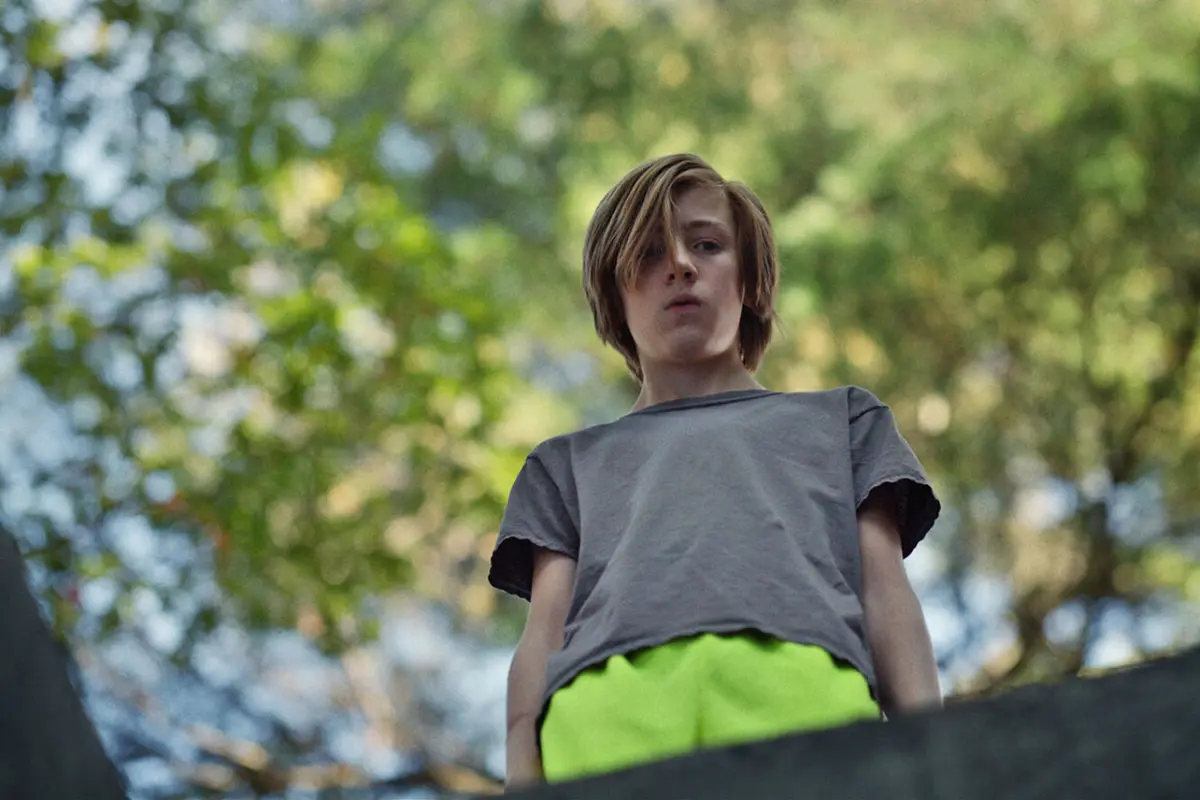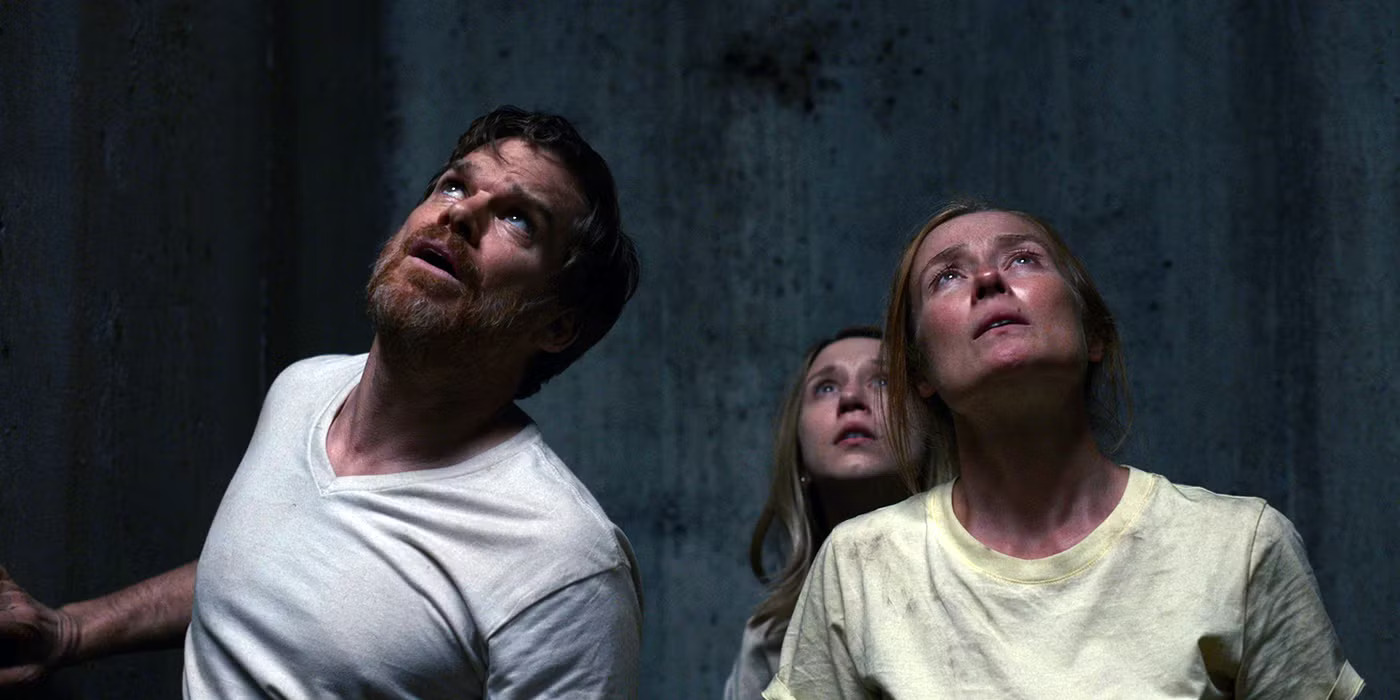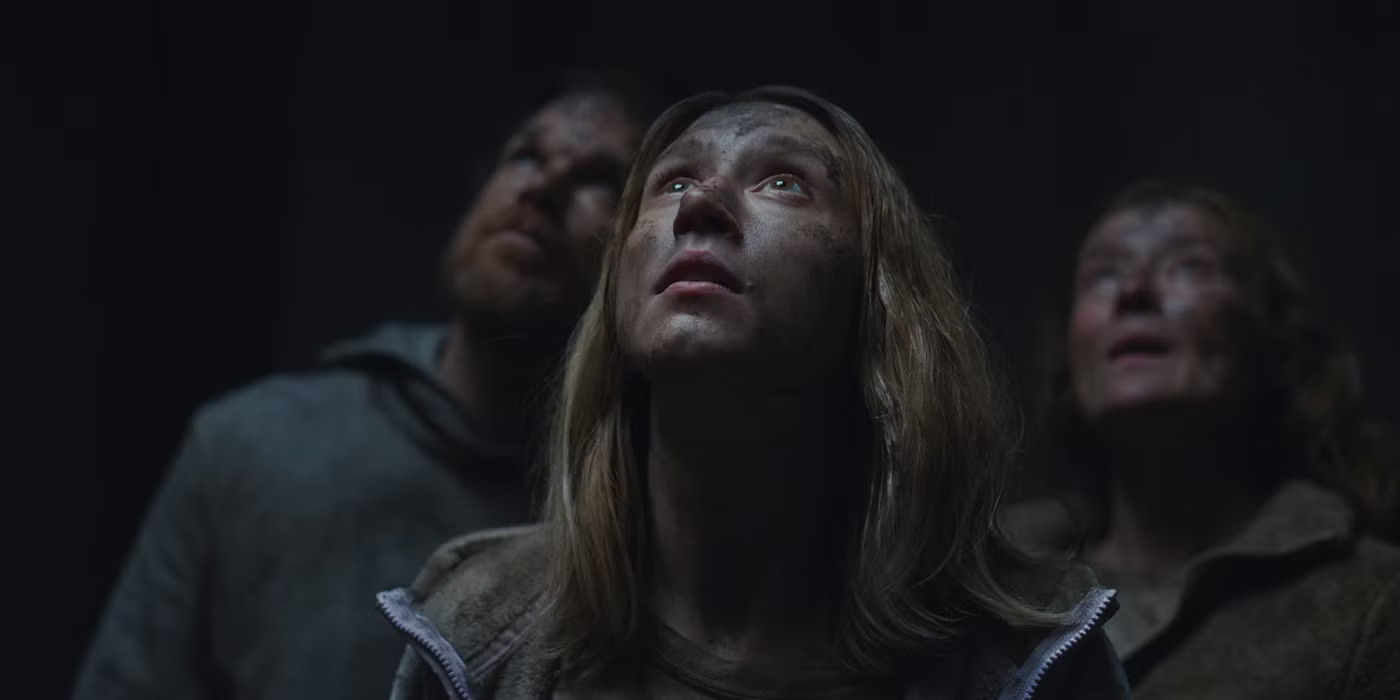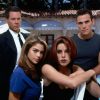John and the Hole, directed by Pascual Sisto, is a psychological thriller centered on a 13-year-old boy, John, from a wealthy family. Set in a privileged suburban environment, John is portrayed as aloof and disconnected from those around him. The movie explores themes of wealth, maturity, and the allure of adulthood, all through the lens of John’s peculiar desire to experience life beyond his family’s control. The film’s title encapsulates its premise—John discovers a hole in the woods and traps his family in it, seeking the freedom of adulthood.
From the outset, John exhibits unusual behavior—stilted speech and a cold demeanor. He remains largely detached from his family, speaking little and staring icily at others. This strange behavior raises questions about his mental state, though the film avoids explicitly diagnosing him with any disorder.
Instead, the narrative center on understanding why John feels disconnected and what drives his extreme actions. His family dismisses his oddities, making light of his questions about adulthood, unaware of the darker path John is about to take.

The Family’s Abduction and John’s Desire for Adulthood
John’s curiosity about adulthood grows increasingly unsettling. After drugging his family, he places them in the hole to experience life without restrictions. His motivations aren’t fully explained, but his desire to break free from the constraints of his privileged life is clear.
John seeks the freedom and autonomy that adulthood promises, believing that life will be more fulfilling without his parents’ oversight. As he takes advantage of his family’s absence, John indulges in adult behaviors—drinking, driving, and spending money—yet nothing satisfies his yearning for more.
Despite his attempts to live like an adult, John quickly grows disillusioned with the experience. The freedom he sought doesn’t bring the fulfillment he expected. Instead, he finds himself alone and empty, leading him to yearn for his previous life as a child.
This twist reflects the emptiness that sometimes accompanies adulthood, a theme that resonates with the viewer’s understanding of growing up. John’s journey is a stark reminder that the desire for adulthood often overlooks its inherent challenges and responsibilities, which John is unprepared to face.
In the film’s conclusion, John rescues his family after they begin hallucinating in the hole, but this act is oddly anticlimactic. Instead of facing punishment or guilt for his actions, John is met with indifference. His parents show no signs of anger or retribution, continuing life as if nothing happened.
This lack of consequences highlights a broader critique of privilege, suggesting that wealth insulates individuals from the repercussions of their actions. The film’s portrayal of this dynamic exposes how the rich can sometimes escape the moral responsibilities faced by others.

Affluenza and Its Influence on the Shay Family
The idea of “affluenza,” a term describing the lack of accountability among the wealthy, is central to John and the Hole. John’s actions, although extreme, go unpunished due to his family’s wealth and social status. This idea suggests that the Shay family’s corruption isn’t just individual, but systemic, stemming from their privilege.
Despite John’s extreme actions, such as drugging and trapping his family, no one holds him accountable, reinforcing the notion that wealth can shield individuals from the societal consequences faced by others.
John and the Hole incorporates a seemingly unrelated fairy tale segment, adding depth to its narrative. This subplot, in which a mother tells her daughter a bedtime story about the hole, creates a metaphorical link to the main story. The tale serves as a cautionary lesson about the consequences of both overprotecting and abandoning children.
Through this fairy tale, the film suggests that misguided parenting—whether through overindulgence or neglect—can have dangerous consequences for a child’s development, much like the destructive path John follows.
The fairy tale segment highlights the dysfunctional dynamics of the Shay family, paralleling them with those of a mother, Gloria, and her daughter, Lily. Gloria’s harsh approach to parenting contrasts with the Shay family’s indulgent behavior.
She uses John’s story as a warning to Lily, suggesting that if children are not allowed to experience independence, they may grow up unprepared for life. This subplot reveals how the extremes of parental control can have negative effects, urging a balance between guidance and freedom for healthy development.
The Thematic Connection Between John and Lily
Both John and Lily grapple with the tumultuous nature of growing up, though from different perspectives. John wants to experience adulthood and independence, while Lily is being forced into it prematurely by her mother’s neglect.
Their stories converge in the film’s underlying theme: the dangers of unpreparedness in the transition to adulthood. Whether it’s through excessive coddling or abandonment, both paths lead to negative outcomes, showing how difficult and volatile the process of growing up can be without proper guidance.
The film’s ending has been widely debated among critics and audiences. Some view it as an unsettling exploration of childhood’s fragility, while others find it anticlimactic and unsatisfying. Critics like A.A. Dowd and Peter Debruge appreciated the ending’s depth, seeing it as a critique of adulthood and its complexities.
In contrast, others, like Brian Tallerico, felt the film lacked a clear resolution and failed to deliver on its narrative promises. Regardless of its reception, the ending reinforces the film’s thematic concerns about the perilous nature of growing up, especially when the process is mishandled.



